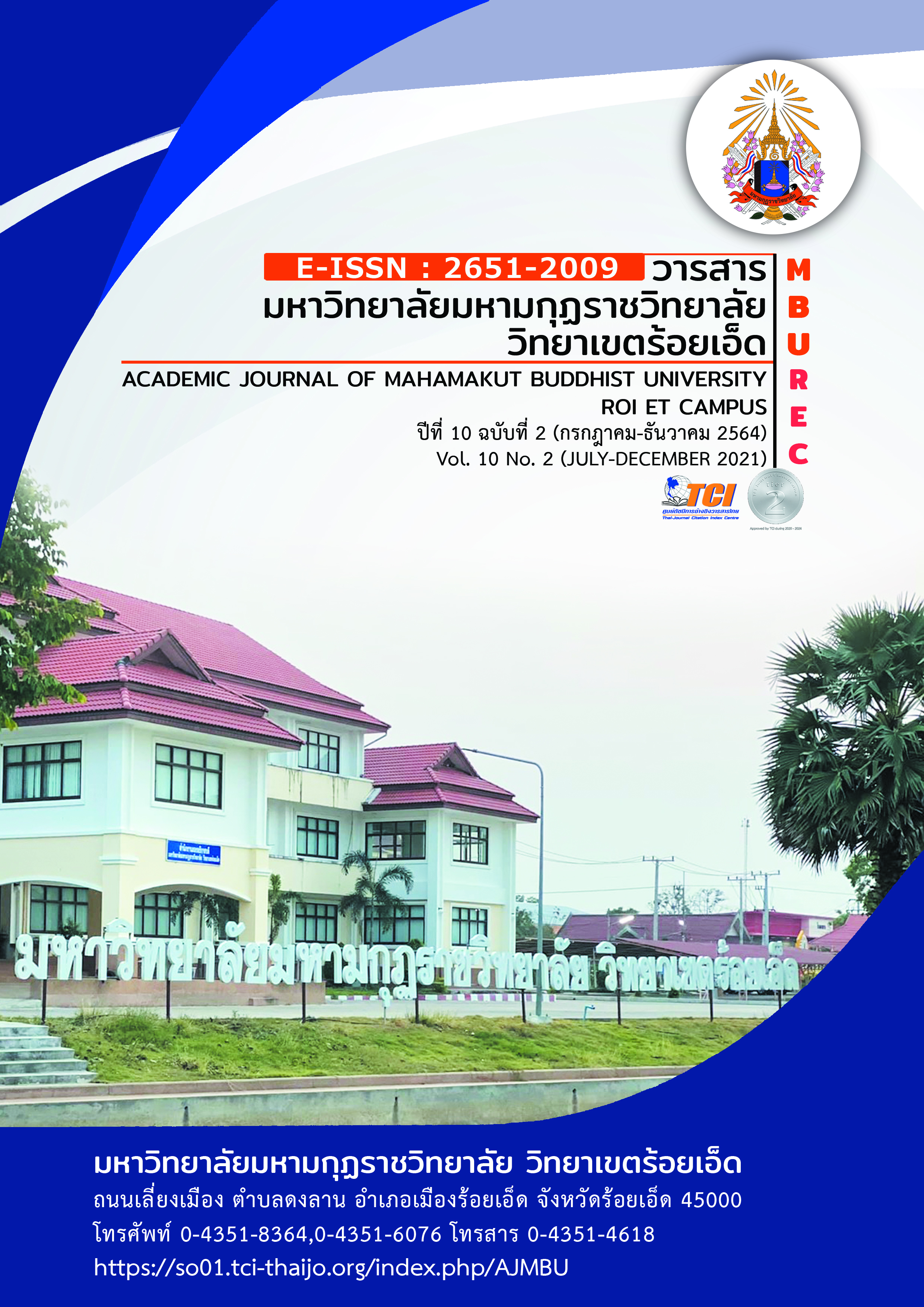Academic Affairs Administration Based on the Threefold Training to Develop Learners in Private School Promotion Groups Under Kalasin Provincial Education Office
Main Article Content
Abstract
The objectives of the research were 1) to study the situation of the academic affairs administration based on the threefold training to develop learners in private school promotion groups under Kalasin Provincial Education Office 2) to compare the academic affairs administration based on the threefold training to develop learners in private school promotion groups under kalasin provincial education office, classified by gender, job experience and education, 3) to collect the related recommendations as suggested by the returned responses. The samples were 327 staff members of the schools as mentioned and the device used for data collection was the 5-rating scale.The statistics used in the research were percentage, mean, standard deviation, t-test and one way ANOVA.
The research results were as follows: 1. The situation of the academic affairs administration based on the threefold training to develop learners in private school promotion groups under Kalasin Provincial Education Office, was, in both overall and individual aspects, found to stand at the ‘MUCH’ level. The aspect that stand at the top of the scale in terms of mean was curriculum and curricular development, followed by evaluation and assessment, class management and supervision, respectively. 2. The comparison of the academic affairs administration based on the Threefold training to develop learners in private school promotion groups under Kalasin Provincial Education Office, classified by gender, job experience and education, was, in both overall and individual aspects, found to display no statistically significant difference. 3. The recommendations suggested by the returned responses are as follows: 1. The contents of curriculum should be designed to meet the community needs. 2. Extracurricular activities should be drawn up as student-centered programs. 3. Regular supervision and follow-up should be implemented. 4. All plans and projects require evaluation and assessment in order that the weakness might be revised and the strengths might be promoted for the sake of the most effective management of education.
Article Details
References
กระทรวงศึกษาธิการ. (2561). ประกาศสำนักงานปลัดกระทรวงศึกษาธิการ ลงวันที่ 12 มิถุนายน 2560 เรื่องการแบ่งหน่วยงานภายในสำนักงานศึกษาธิการภาคและสำนักงานศึกษาธิการจังหวัด สังกัดสำนักงานปลัดกระทรวงศึกษาธิการ. สืบค้นเมื่อ 24 กุมภาพันธ์ 2561. จาก http://www.moe.go.th/moe/th
ปรียาพร วงศ์อนุตรโรจน์. (2559). การบริหารงานวิชาการ. กรุงเทพมหานคร : ศูนย์สื่อเสริมกรุงเทพ.
โรงเรียนอนุบาลบงกชเพชรมณี. (2561). รายงานการปฏิบัติงานโรงเรียนอนุบาลบงกชเพชรมณี ปีการศึกษา 2561. กาฬสินธุ์ : โรงเรียนอนุบาลบงกชเพชรมณี.
วิรัช วิรัชนิภาวรรณ. (2554). การบริหารจัดการและการบริหารยุทธศาสตร์ของหน่วยงานของรัฐ. กรุงเทพมหานคร : ฟอร์เพซ.
วิสูตร ชลนิธี และคณะ. (2558). กลยุทธ์การพัฒนาคุณภาพผู้เรียนตามหลักไตรสิกขาของโรงเรียนบ้าสะพานสี่ อำเภอปลวกแดง จังหวัดระยอง. วารสารวิจัยและพัฒนา วลัยอลงกรณ์ในพระบรมราชูปถัมภ์ สาขามนุษยศาสตร์และสังคมศาสตร์. 10(3). 303-316.
สุพรรณิกา สีสอาด. (2556). การศึกษาสภาพการบริหารงานวิชาการของโรงเรียนเอกชนระดับอนุบาลศึกษาในเขตบางกอกน้อยกรุงเทพมหานคร. วารสารการจัดการสมัยใหม่. 11(2). 102-111.
สุพรรณิกา สีสะอาด. (2556). การศึกษาสภาพการบริหารงานวิชาการของโรงเรียนเอกชนระดับอนุบาลศึกษาในเขตบางกอกน้อยกรุงเทพมหานคร. วารสารการจัดการสมัยใหม่. 11(2). 102-111.
Jane Schnidt-wilk. (2003). Developing consciousness in organizations: The transcendental meditation program in business. Journal of Business and Psychology. 10(4). 429-444.
Krejcie, R. V. & Morgan, D. W. (1970). Determining Sample Size for Research Activities. Educational and Psychological Measurement. 30(3). 607-610.


